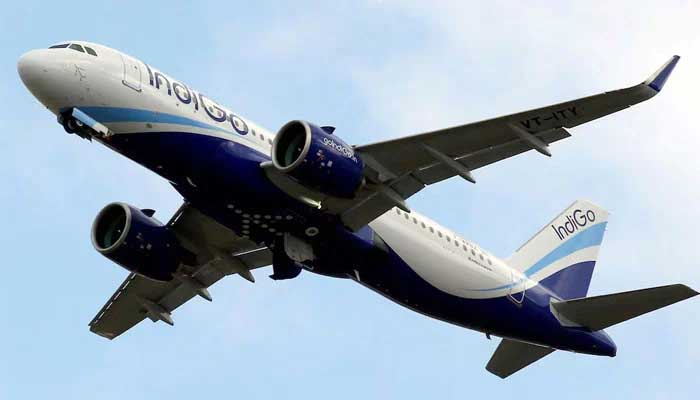
ISLAMABAD: Pakistan on Monday extended its airspace restrictions on Indian-registered and operated aircraft for an additional month, with the ban now in effect until 5:00am on July 24, the Pakistan Airports Authority said.
According to a new NOTAM (Notice to Airmen), the restriction bars Indian commercial airlines, India-registered aircraft, and military flights from entering Pakistani airspace.
Pakistan had first imposed the airspace ban on April 24 in response to India’s unilateral move a day earlier to close its airspace to Pakistani aircraft amid heightened bilateral tensions following the deadly Pahalgam attack in Indian Illegally Occupied Jammu and Kashmir (IIOJK).
The initial restriction was extended on May 23 for another month.
The latest extension to bring the total duration of Pakistan’s airspace closure for Indian aircraft to 90 days.
India closed its airspace to Pakistani flights on April 23, prompting a reciprocal ban from Islamabad the next day. India then took several other measures against Pakistan.
Later, on May 6-7, India launched unprovoked attacks on multiple Pakistani cities.
In response, Pakistan armed forces launched a large-scale retaliatory military action, named “Operation Bunyan-um-Marsoos”, and targeted several Indian military targets across multiple regions.
The strikes, described by officials as “precise and proportionate”, were carried out in response to India’s continued aggression across the Line of Control (LoC) and within Pakistan’s territory, which New Delhi claimed were aimed at “terrorist targets”.
Pakistan downed its six fighter jets, including three Rafale, and dozens of drones. After at least 87 hours, the war between the two nuclear-armed nations ended on May 10 with a ceasefire agreement brokered by the United States.
According to ISPR, a total of 53 individuals, including 13 personnel of the armed forces and 40 civilians, were martyred in Indian strikes during the recent military confrontation.
While India’s aviation industry has faced heavy losses, the impact on Pakistani aviation has been minimal. With only one eastbound flight rerouted via China and limited operations in the Far East, Pakistan’s aviation sector remains largely unaffected.
This is not the first time Pakistan has imposed such restrictions. Airspace closures were previously enacted during the 1999 Kargil conflict and the 2019 Pulwama crisis, both instances in which India faced greater aviation disruptions than Pakistan.
Financial blow to Indian airlines
According to sources, Indian airlines have suffered losses exceeding Rs8 billion in April alone. These include Rs5 billion in additional fuel costs and Rs3 billion in expenses incurred due to forced stopovers by long-haul flights, Reuters reported.
Sources note that Indian carriers operating Boeing 777 and Airbus A320 family aircraft have had to endure 2 to 4 hours of extra flying time per journey. With approximately 150 flights rerouted daily, fuel consumption has surged dramatically.
Experts estimate that a Boeing 777 consumes about 6,668 kilograms of fuel per hour, while an Airbus A319, A320, or A321 uses around 2,400 kilograms per hour. At the current average jet fuel price of $0.82 per kilogram, Indian airlines are spending nearly $557,625 daily on additional fuel alone. That amounts to over Rs5 billion in fuel-related losses in one month.
In addition, the extended travel times have triggered crew duty hour limitations, necessitating crew changes at transit airports. These stopovers also involve added costs for landing fees, refuelling, and airport services. Over the past 30 days, such stopover-related expenses have totalled between Rs2.5 and Rs3 billion.
Air India is reportedly the worst-hit carrier and has requested financial support from the Indian government. Other airlines, including Akasa Air, SpiceJet, IndiGo, and Air India Express, have also faced operational disruptions.
Flights originating from Amritsar, Delhi, Ahmedabad, Bangalore, and Jaipur are now forced to traverse longer western routes over the Arabian Sea. These detours affect flights to destinations in North America, Europe, and the Middle East.
Sources have indicated that if the ban continues and the Indian government does not provide special assistance, Indian airlines may be forced to take extraordinary steps to sustain operations.












